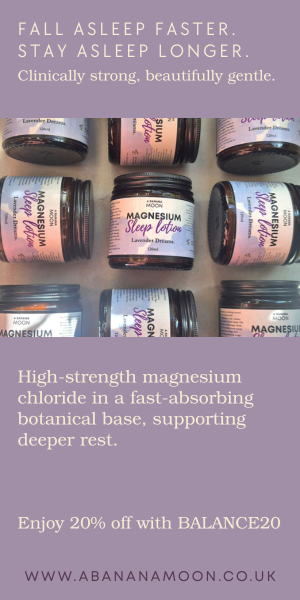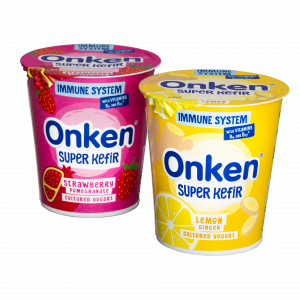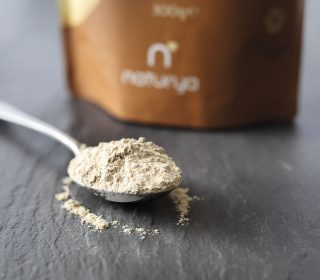8 brilliant research-backed ways to support your immunity

If there’s one thing the last however-many months have taught us, it’s the vital link between a healthy body and a healthy mind. When your immune system is strong, your wellbeing benefits and, when you’re feeling happy and positive, your immunity levels are naturally higher.
The downside of this is that if one takes a battering, the other can also be compromised. But don’t worry, a few small changes is all you need to help you get back on track. So forget your troubles – come on, get happy and healthy with these brilliantly easy ways to boost your all-round wellness.
1 Think positive
Looking on the bright side of life isn’t just more fun than being a pessimist, it could keep you alive longer. A study by Johns Hopkins University found people who had a positive outlook were up to a third less likely to have a heart attack – even in those with risk factors or a family history. Try smiling more. Another study found that just cracking a grin – even when it was a fake one – reduced people’s heart rate and blood pressure.
2 Eat a rainbow of fruit and vegetables
First, this is the best way to get a big dose of antioxidants into your diet. They counteract unstable molecules in the body called free radi
cals, preventing the damage and inflammation they cause which, in turn, is linked to illnesses and long-term conditions. In short, fruit and veg help fight against diseases from colds to cancer.
Second, they’re a great source of fibre: essential for keeping your gut happy. It feeds the good bacteria down there which is vital for a strong, healthy immune system.
A wide variety of colours provides a good range of antioxidants. For maximum fibre, eat whole fruits and vegetables rather than juices, smoothies or purées.
3 Feast on fermented foods, such as kefir
Up to 80% of your immune system resides inside your gut, so it makes sense to take the best care of it you can. Fermented foods like kimchi, sauerkraut and kefir contain beneficial bacteria which line the gut and create a robust immune system.
Try Onken Super Kefir. This yogurt is packed with billions of live cultures from a whopping 14 unique varieties and, unlike a lot of strong or sour fermented foods, it tastes great with none of the usual bitterness. It comes in two flavours – Strawberry & Pomegranate and Lemon & Ginger – and contains vitamins B6 and B12 – to help the immune system by supporting cell health, red blood cells, energy levels and cardiovascular health, with no artificial flavourings, colours or preservatives.
There’s increasingly impressive evidence of the link between gut health and mental health. Microbes in the gut, which also exist in kefir, have been shown to have a positive effect on people suffering from depression.
4 Cut down on refined sugars
It’s not all about what you put in – sometimes it’s what you leave out. Most of us know too much sugar can have a negative effect on our health, leading to conditions such as Type 2 diabetes. But the short term effects can be detrimental too. One recent study showed that a spike in sugar levels decreased the effectiveness of infection-fighting white blood cells by up to 50% for 1-2 hours after eating sugary foods.
5 Master your sleep patterns
Not getting enough good quality shuteye puts you at increased risk of illness. One study found that less than six hours’ sleep a night left people more susceptible to common colds. Hot summer nights can play havoc with your bedtime routine, but a few simple changes can help.
Switch off the TV at least an hour before bed – and no more scrolling social media feeds under the sheets. The light from electronic screens interrupts the body’s natural circadian rhythm, making it harder to drop off.
Also make sure it’s cool enough. Body temperature naturally falls at night to signal sleep time. Keep the window open if you can and swap bedding for cooler, summer weight covers. Before bed, a lukewarm shower can gently lower your body temperature (but not a cold one, which will over stimulate you).
6 Exercise regularly – just not too much
Moderate exercise – enough to get your heart rate up – can lower your risk of illness. A scientific review from 2019 noted a brisk 45-minute walk increased blood flow around the body, which also boosted the circulation of immune cells. The effects faded after a few hours so keeping it regular is key – four to five times a week.
Meanwhile athletes doing periods of intense training and competing suffered from more illnesses, so don’t overdo it. Constant-paced aerobic activities like brisk walking, light jogging, hill walking or cycling, are good options.
7 Wash your hands – and dry them, too
Oh, you’ve heard about hand-washing already? Yes, sorry, we know the message has been oft-repeated recently. But drying hands properly is actually just as important, because damp and clammy is exactly the environment germs love to multiply on, and wet hands pick up and spread germs more easily. Wash and dry thoroughly to get the full effect.
8 Get on top of your stress levels
When we’re stressed, we produce the hormone cortisol. It can be good in the short term – a great motivator – but over time, the body adapts to the higher levels of it, which can lead to inflammation. It also reduces the amount of infection fighting cells in the blood, leaving you more at risk of illness.
There’s nothing more stress-inducing than being told to ‘just relax’ but there are practical exercises that help. Meditating for 10 minutes a few times a week has been shown to reduce cortisol levels. Alternatively, join a yoga class. Several studies have shown that, over a period of a few weeks, regular yoga helped participants manage stress and anxiety. Get comfortable with the Ajna Bolster Cushion – useable as a seat cushion or a neck rest, the bolster’s wide, rectangular shape ensures support as you meditate or practice yoga.














